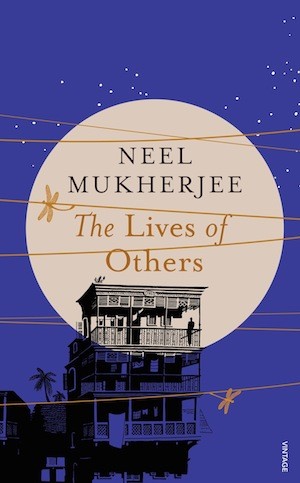Diving into a long family epic is one of my favourite literary luxuries. Days and days of reading until you feel you’ve almost become ‘part of’ the family. The Lives of Others is just this kind of book. What’s more, it sucks you in from the very first page in one of the most harrowing prologues I’ve come across. Intrigue, double lives, betrayals, gossip, shocking inequality, illicit love affairs, politics, Mukherjee’s The Lives of Others has it all.
Set in Calcutta in the late 1960s, the affluent paper manufacturing Gosh family takes centre stage in Mukherjee’s novel. Their four story home houses the patriarch and matriarch Prafullanath and Charubala Gosh as well as their four surviving children and spouses, their deceased son’s widow, and six grand-children.
Life in the Gosh household is like a micro cosmos of Indian society with the older favourite son and his family on the top floor with his parents where it’s ‘less noisy’, fewer mosquitos and ‘safer from the troubles on the street’, the rest of the family on the other floors in order of descending importance and fortune, with the widow of the youngest son and her two children stowed away on the ground floor with the servants.
I wouldn’t call it a happy household. There’s jealousy and intrigue, betrayals and gossip, bickering about who has got the most money, the most saris and the most jewellery. In fact, they’re all so absorbed by their petty quarrels, that no one notices when Supratik, one of the teenage children in the household, disappears.
Disgusted by the gulf between rich and poor and the behaviour of his own family towards their labourers, Supratik leaves to join the Naxalites, a Maoist guerrilla group. Taking a job as a farm worker to mobilise support amongst the exploited, he literally lives ‘the lives of others’. It’s an unbelievable tough existence, described with passion, in some of the finest passages of the book.
I was ashamed to be thinking of sunstroke when beside me Kanu, drenched, smelling awful, seemed indifferent to the sun. I looked at him and was struck again by how everything about him was wiry: his thin legs and arms, the veins on them bulging out like ribs; the dark curly hair, like dense pile of wire clippings. Where did this beaten physique, as if something carved in oily dark stone, come from, if all he and his kind got to eat was chhatu and rice and puffed rice once, maybe twice, a day?
His well-intentioned idealism soon develops into something much darker. It won’t be the last misfortune to strike the Goshes as the family and the firm slowly disintegrate.
The refusal to confront reality is a recurring theme in the Gosh family and a driving force behind their downfall. So much is felt and thought but not said. Such as Charubala’s strong suspicion that her son Priyo and daughter Chhaya have an incestuous relationship.
Charubala was again on the brink of thoughts she had managed to keep unthought, just about, for many years. She looked into the whirlpool briefly and felt dizzy with…with what? Fear? Shame? She looked away quickly and decided that it was a matter of the greatest imperative that either Priyo or Chhaya, and preferably both, got married as soon as possible.
The book is essentially two stories: Supratik’s letters to an illicit lover and the birds-eye view on the Gosh family. As is often the case with two narratives, one becomes more engaging than the other. Of the two, I found the Gosh family story the more engrossing, but that does not mean Supratiks’s foray into guerrilla activities is not dramatic and interesting too.
Mukherjee’s great skill as an author is his ability to inhabit his characters’ minds, exploring their thoughts and seeing the world through their eyes. We get to know them all – and there are many – hence the length of the book, but at no point did I get bored. A perfect summer read!
The Lives of Others by Neel Mukherjee is published by Vintage Books, 505 pages.





